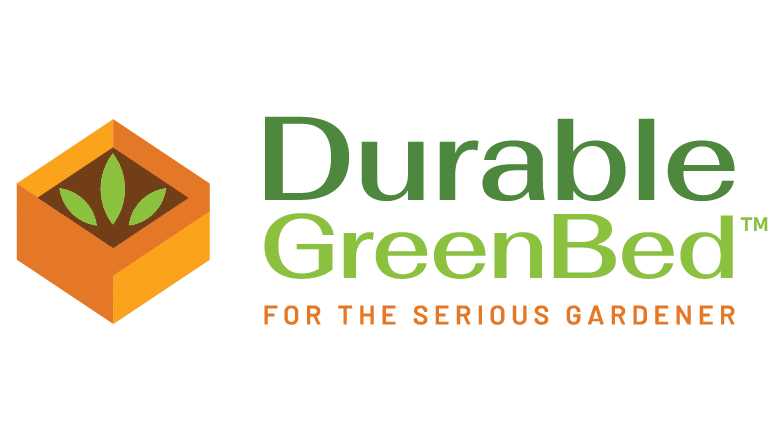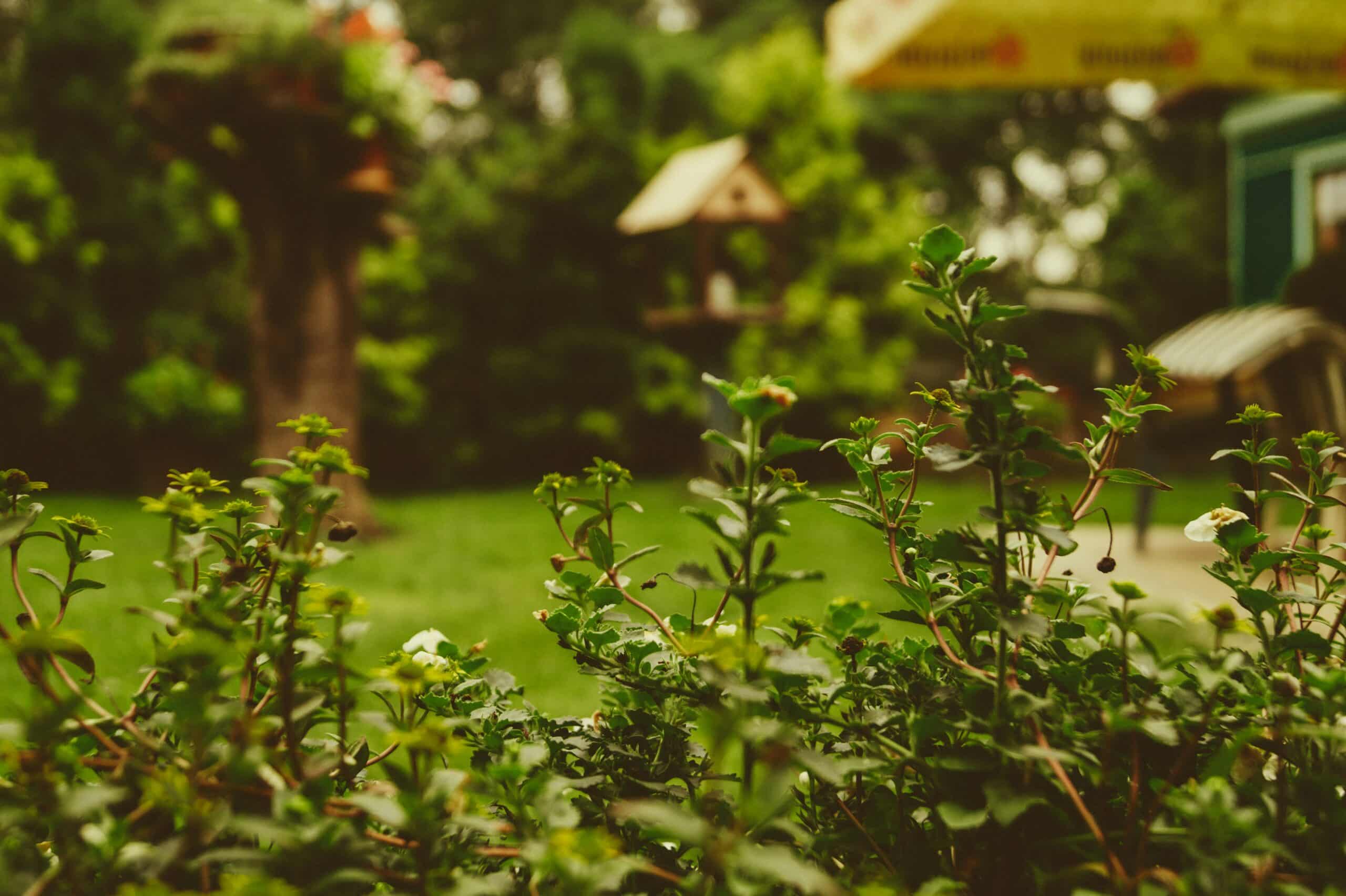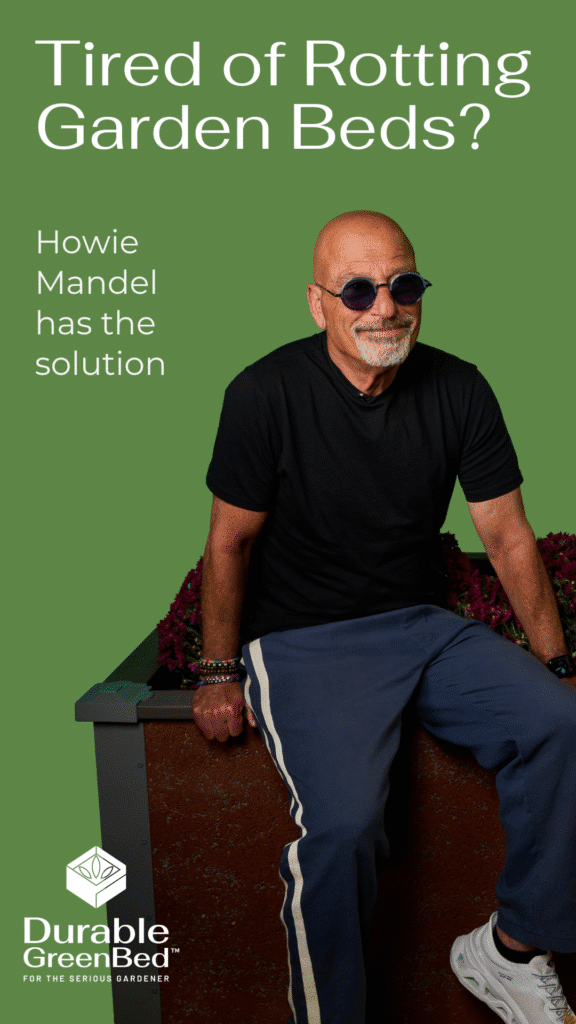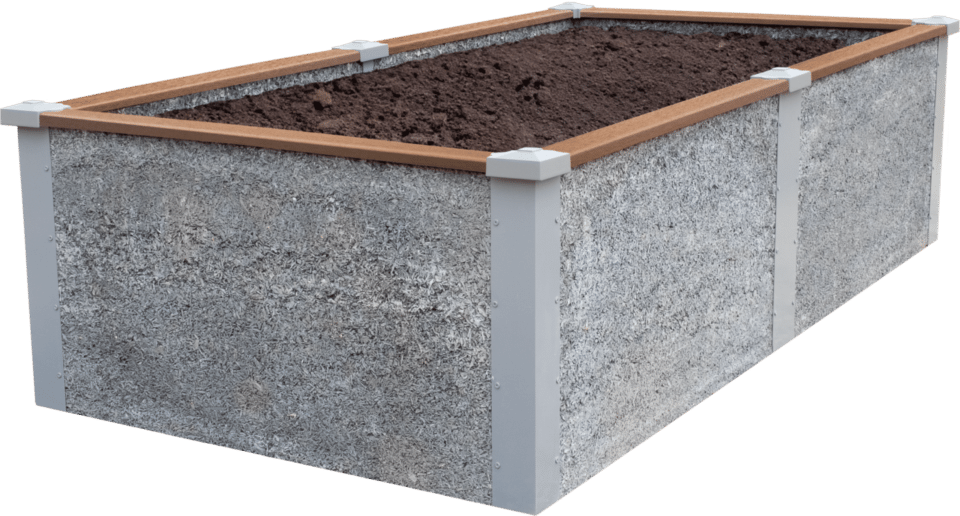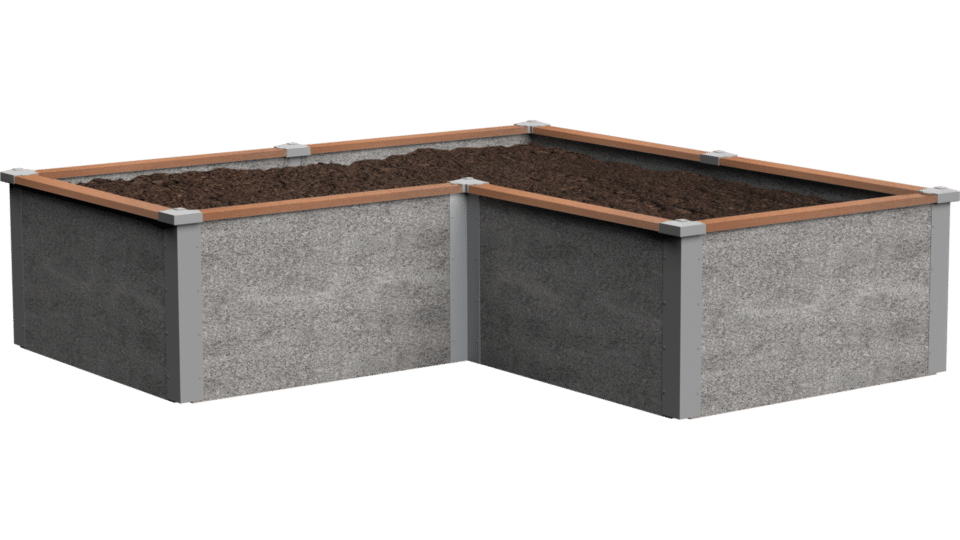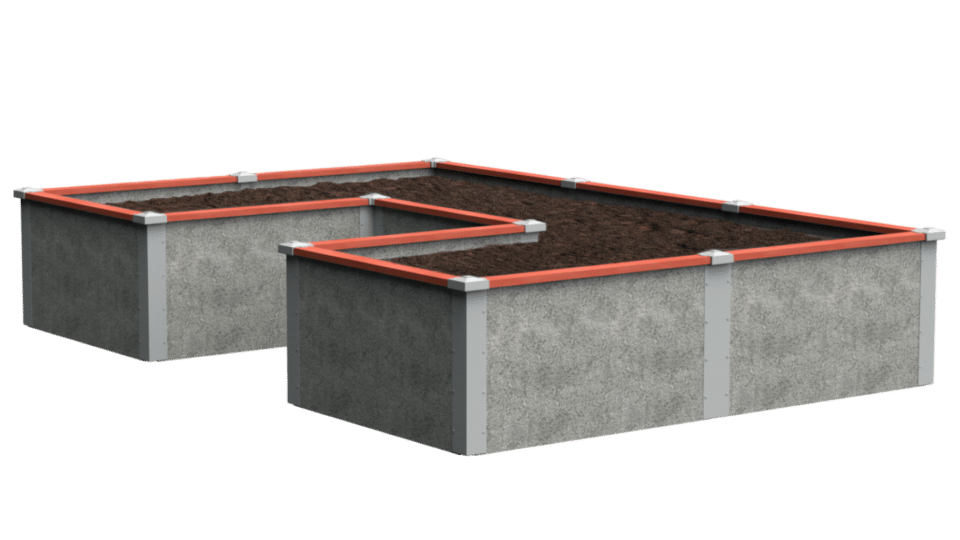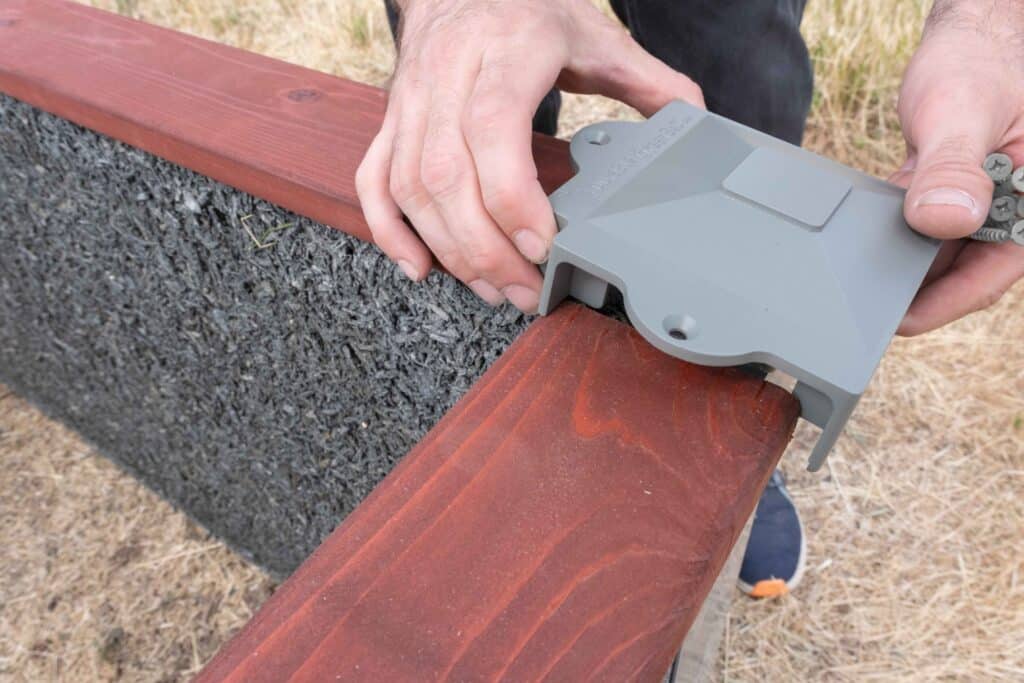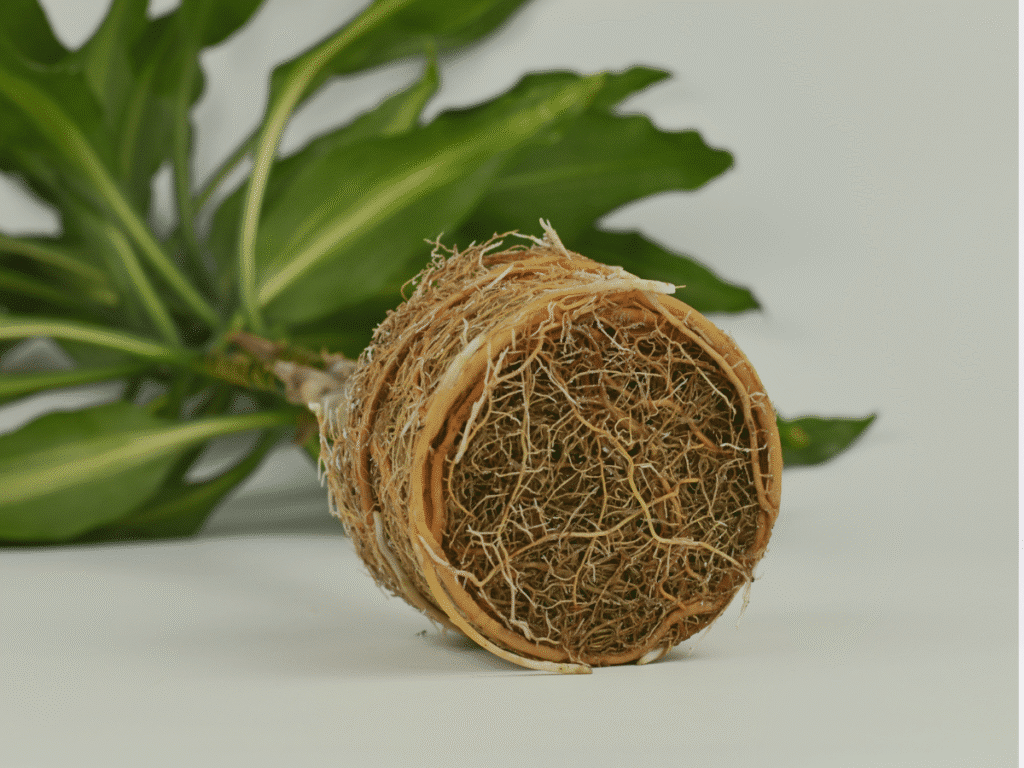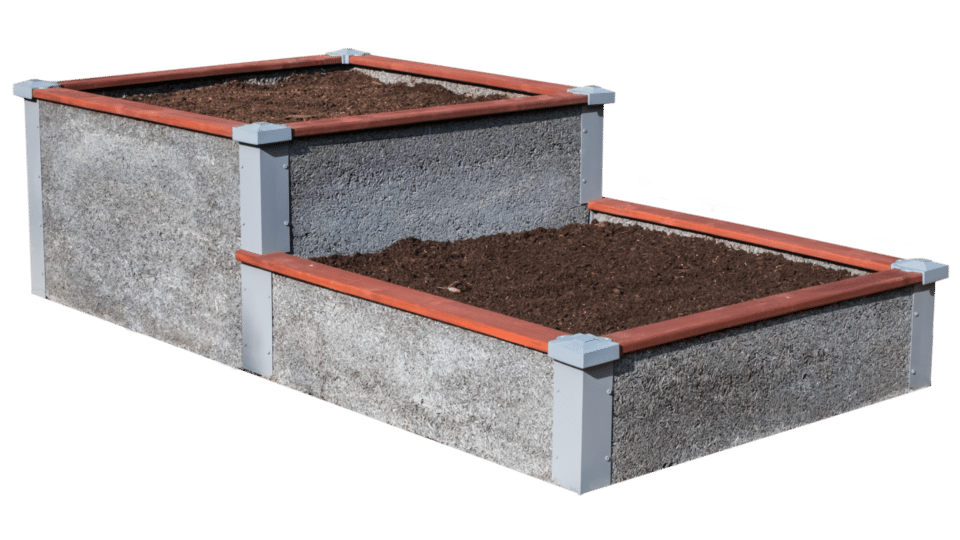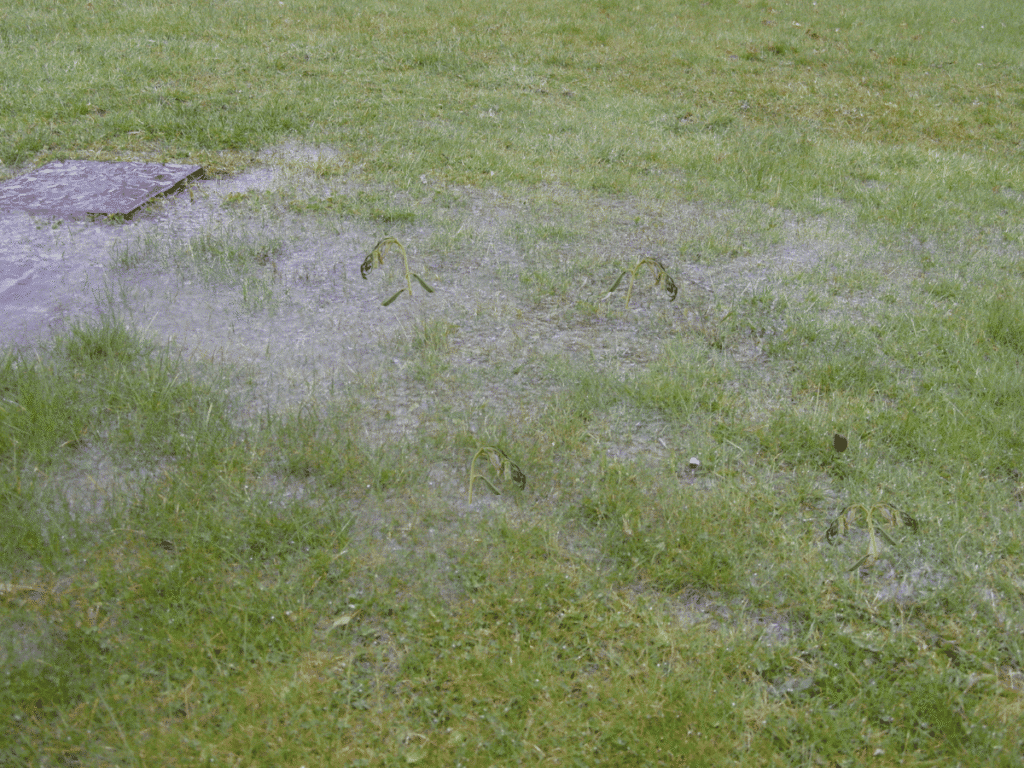
Concerns regarding microplastics in our food, water, environment, and soil have never been higher. Research shows that the average person is consuming about 5 grams of microplastics a week –that’s as much as a credit card. Some commonly known microplastic sources are from them leaching into our food via cookware, food and product packaging, drinking water and agricultural practices. If you’re among the 86% of people who are concerned about microplastics in your environment or for your health, Durable Greenbed has options for plastic free gardening supplies for you. We recommend our wide range of garden bed products found here with the ‘Cedar Wood’ trim option, as all of our panels are completely non-toxic and can help you go plastic-free in your garden.
We often turn to home gardens as a healthy, environmentally friendly, and economical way to enjoy fresh fruits and vegetables. We can make sure we’re growing our food to our standards, from the fertilizers, soils, and yes, the beds themselves. All of this care is one of the joys of growing your own food, so if limiting plastic consumption exposure is on your mind when you grow food at home, you have options. Garden beds are exposed to all the elements, which makes it necessary to choose safe and durable materials.
Should I Put Plastic In My Garden?
While plastic garden beds may seem like a viable alternative to other raised bed materials, even recycled (seemingly better for the environment than virgin plastic) doesn’t prevent soil leaching. Plastic degrades over time, and that degradation is expedited by light, water and heat, three essential features in a summer outdoor garden where you may grow your veggies and berries. When you grow your food in plastic-walled beds, your exposure to microplastics increases. Even if you only ever grow flowers and ornamental plants in your garden beds, plastic beds will degrade and leach chemicals and microplastics into the surrounding soil over time. Many companies offer food-safe plastic garden beds, but the microplastics remain, and we remain in a cycle of plastic overconsumption.
Beyond the plastic consumption concerns, there is also the fact that plastic doesn’t breathe like natural materials. It’s the difference between going for a jog in a linen shirt versus Seran wrap! This can be a breeding ground for rot and pests. Durable Greenbed’s panels are completely nontoxic, made of 85% mineralized wood and 15% cement: natural materials that breathe and allow your soil to remain healthy so you can grow more, year after year. See the difference yourself, Cliquez ici for more details and to order a Durable Greenbed sample. Your garden can be your first step in reducing plastic in and around your home.
How Do I Keep Plastic Down In My Garden?
Going plastic free can be very challenging when it is often the only option available for packaging and many consumer products. Luckily, that’s not true when it comes to picking your garden bed. It is so simple with Durable Greenbed to make a plastic-free choice for your garden. If you are trying to cut back on plastics for the environment or the growing research that shows microplastics may be hazardous to human health, garden beds are an easy win. Durable Greenbed makes it straightforward and fun to garden plastic-free.
There's Nothing Like Durable GreenBeds
It's the Walls!™
- Respirant
- Well Draining
- Higher Yields
- Prevents Slugs and Pests
- Non toxique
- 20-25 Year Lifespan
Shop Durable GreenBed Kits
-
Rectangular Raised Garden Bed Kit
$471.00 – $2,085.00Plage de prix : $471.00 à $2,085.00 Sélectionnez les options Ce produit a plusieurs variantes. Les options peuvent être choisies sur la page du produit -
L-Shaped Raised Garden Bed Kit
$786.00 – $1,305.00Plage de prix : $786.00 à $1,305.00 Sélectionnez les options Ce produit a plusieurs variantes. Les options peuvent être choisies sur la page du produit -
U-Shaped Raised Garden Bed Kit
$1,199.00 – $2,446.00Plage de prix : $1,199.00 à $2,446.00 Sélectionnez les options Ce produit a plusieurs variantes. Les options peuvent être choisies sur la page du produit
Magasinez les ensembles de lits de jardin surélevés GreenBed durables
-
Rectangular Raised Garden Bed Kit
$471.00 – $2,085.00Plage de prix : $471.00 à $2,085.00 Sélectionnez les options Ce produit a plusieurs variantes. Les options peuvent être choisies sur la page du produit -
L-Shaped Raised Garden Bed Kit
$786.00 – $1,305.00Plage de prix : $786.00 à $1,305.00 Sélectionnez les options Ce produit a plusieurs variantes. Les options peuvent être choisies sur la page du produit -
U-Shaped Raised Garden Bed Kit
$1,199.00 – $2,446.00Plage de prix : $1,199.00 à $2,446.00 Sélectionnez les options Ce produit a plusieurs variantes. Les options peuvent être choisies sur la page du produit
